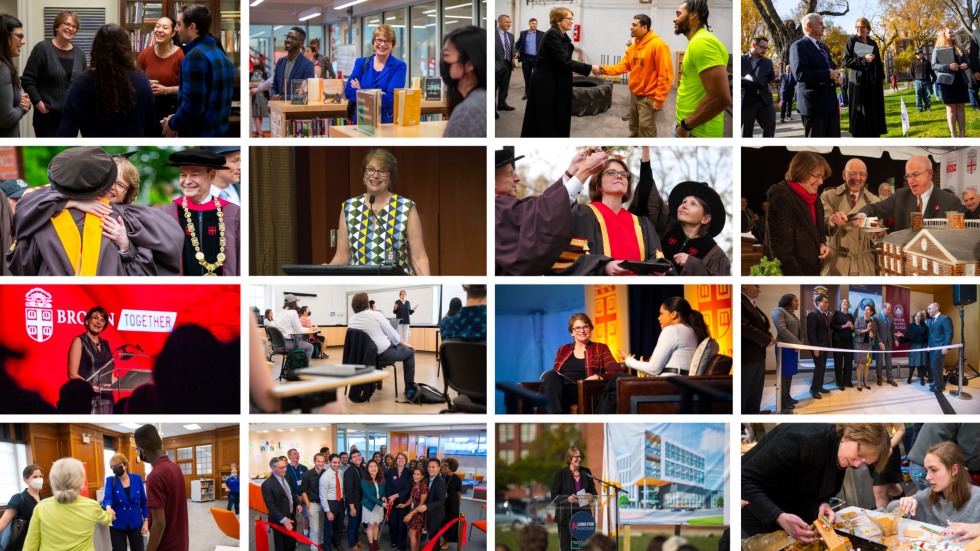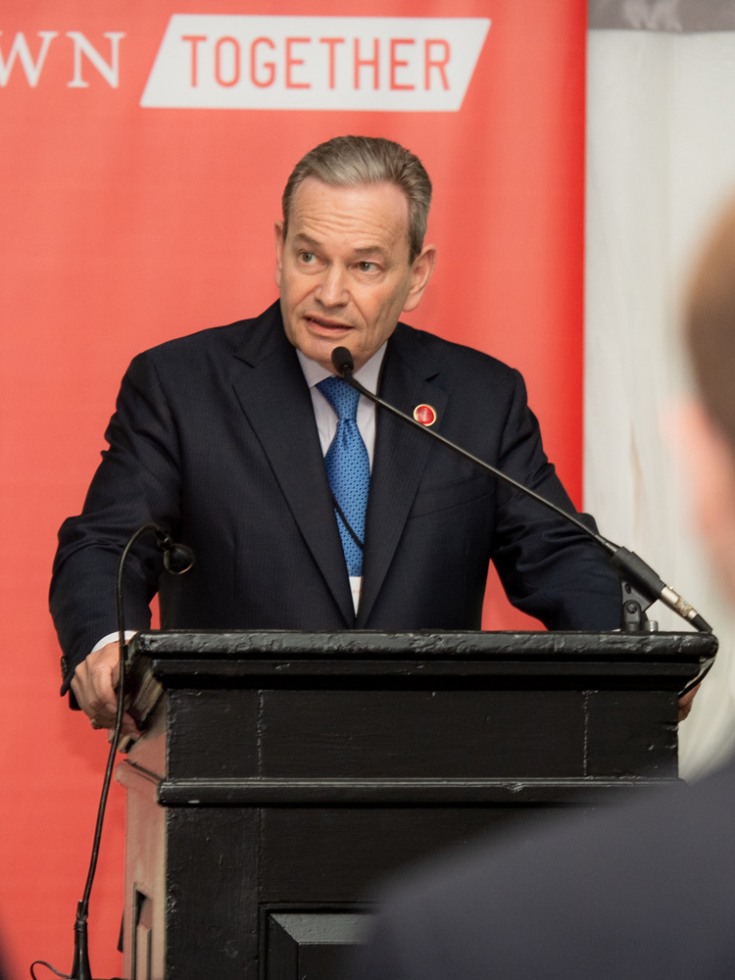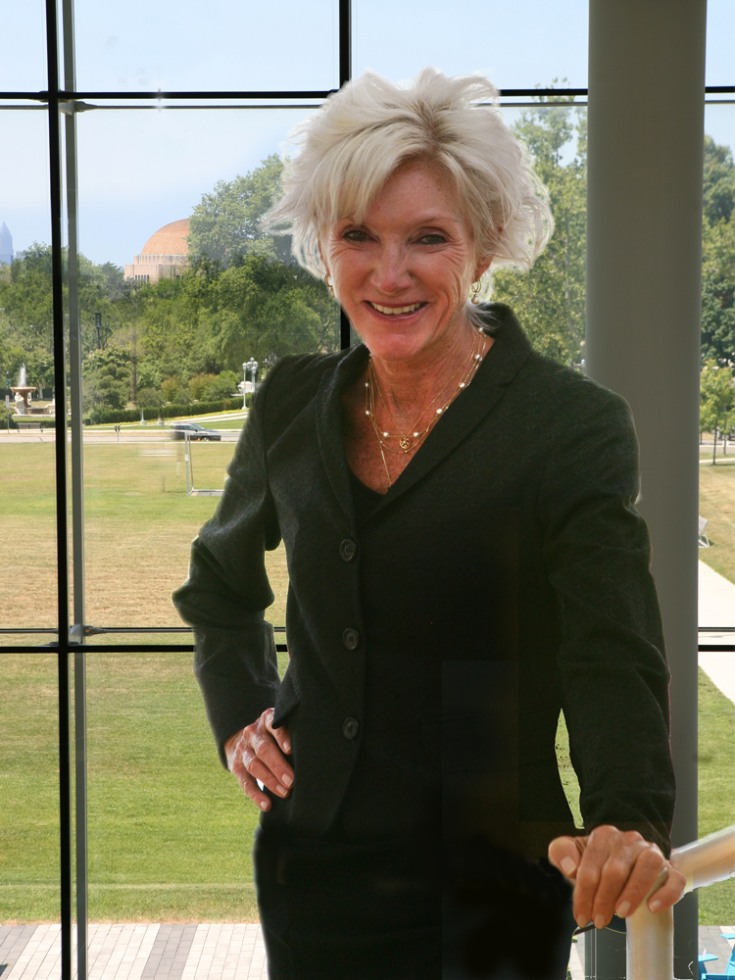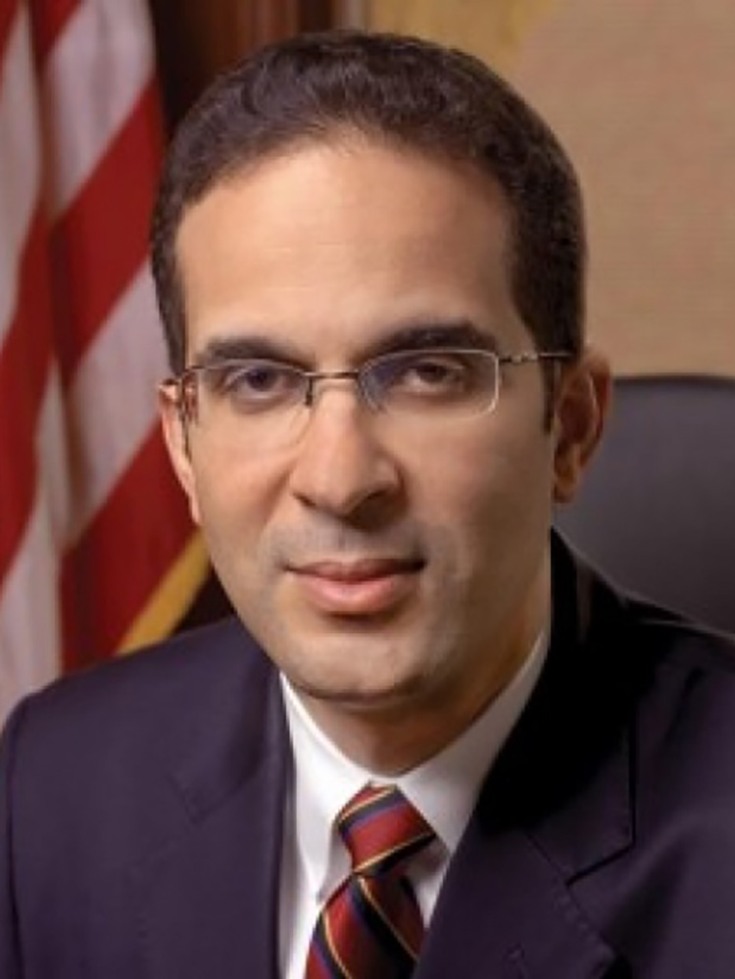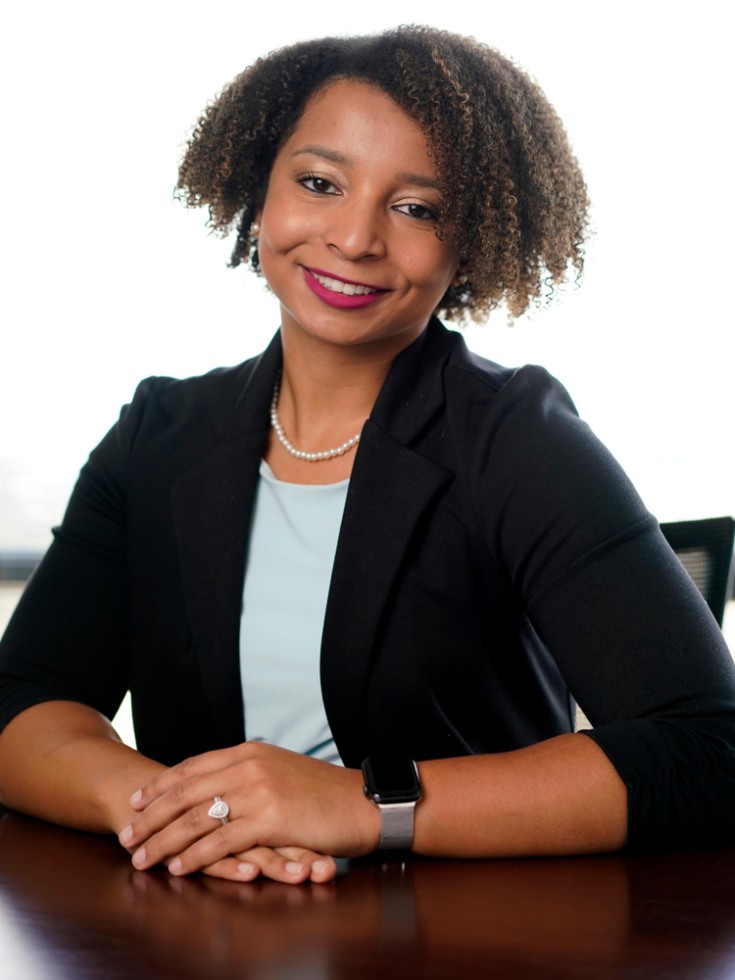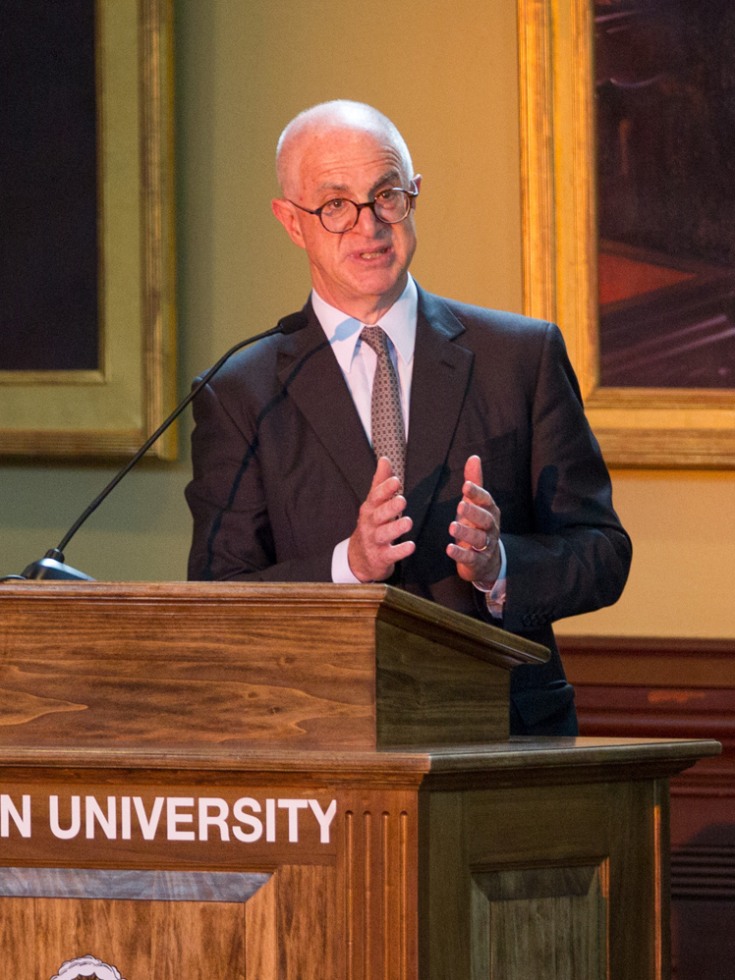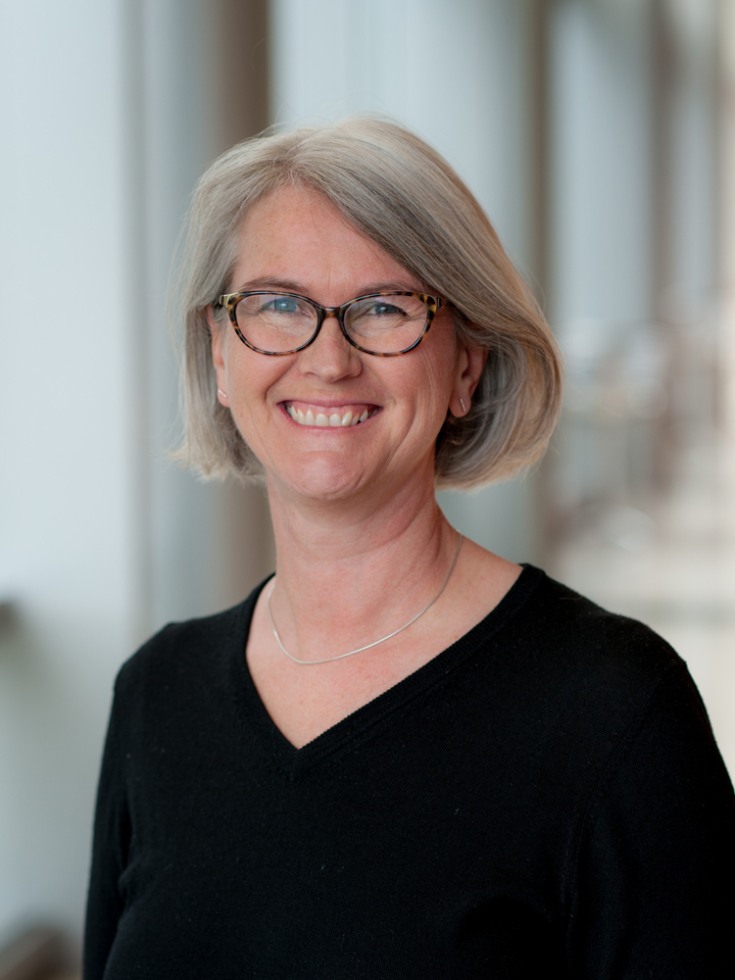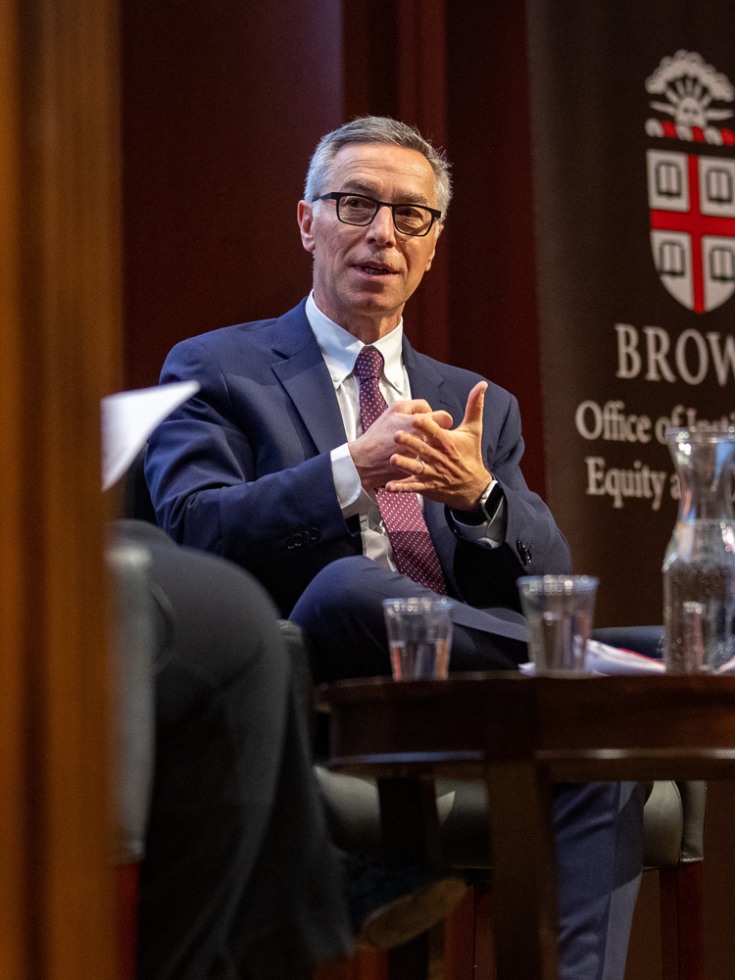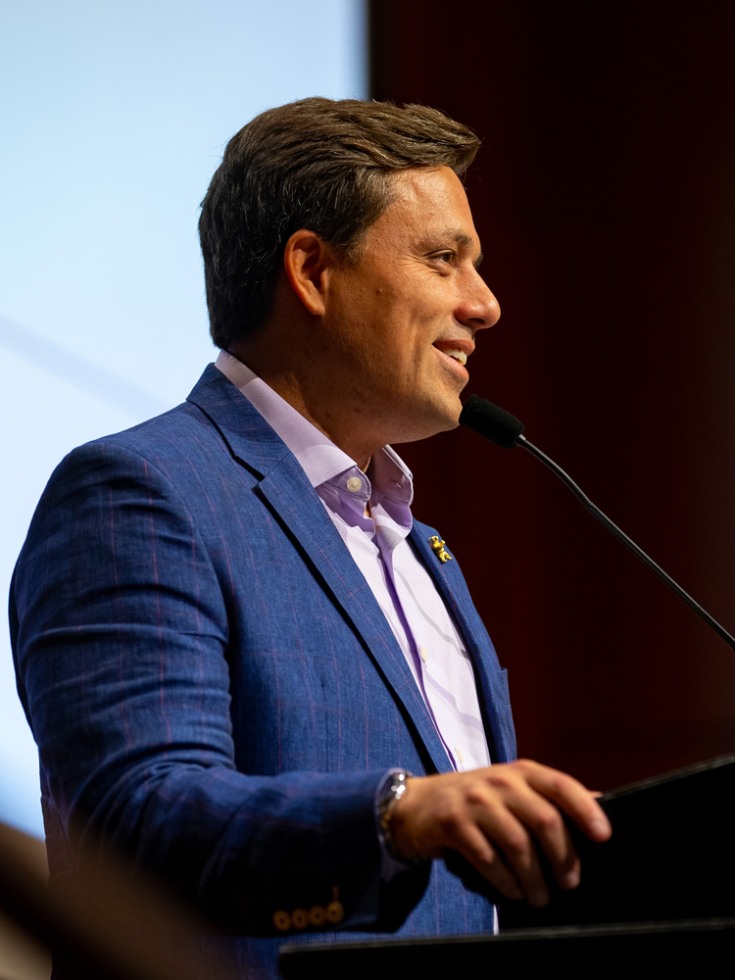PROVIDENCE, R.I. [Brown University] — Soon after her appointment as Brown University’s 19th president in 2012, economist and higher education leader Christina H. Paxson set forth a vision for working with an exceptional community of faculty, staff and students to continue building an extraordinary research and teaching institution.
“It’s a huge responsibility, and I can tell you I will try my very best to live up to the high expectations that you rightly have for Brown’s next president,” she said on the day of her appointment.
In the decade since, under Paxson’s leadership, Brown has fortified its standing as a leading research university known for scholarship that makes a positive impact on the most complex issues, innovation in undergraduate education, and a deep commitment to advancing inclusion and access. The campus also has weathered social and political change facing the country and higher education.
On the 10-year anniversary of her arrival at Brown, Paxson shared insights and perspectives on serving as president during a time of transformation, and what she looks forward to accomplishing in the years to come. The transcript of the conversation has been edited for length.
Also included are thoughts on her presidency from a selection of colleagues and students with whom she has worked since 2012.
